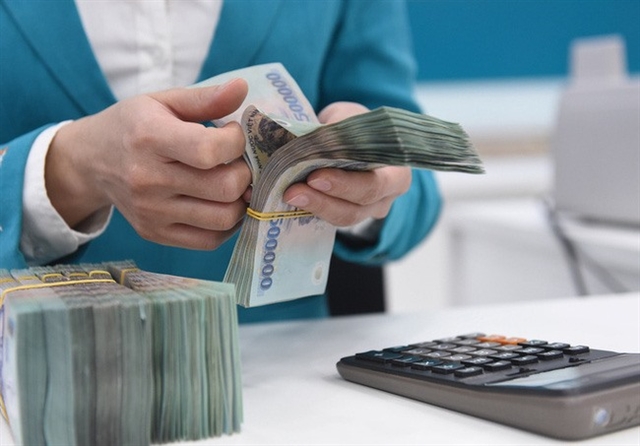Not only has the đồng depreciated against the euro, it has also weakened sharply against many other key currencies such as the yen (11 per cent), pound (11 per cent) and Australian dollar (7 per cent).

HÀ NỘI — Besides a significant depreciation against the US dollar, the Vietnamese đồng has weakened sharply against other key currencies, such as the Euro, British pound, Japanese yen and Australian dollar, so far this year.
The euro listed at domestic banks has surged sharply to date this year. Specifically, Vietcombank, which has the largest foreign currency trading volume in the banking system, listed the euro at VNĐ29,606 and VNĐ31,167 per euro for buying and selling, respectively, on June 25. This represents an increase of about 14 per cent compared to the beginning of this year.
Other major banks such as VietinBank, BIDV, Techcombank, MB and Sacombank also increased the euro selling price to more than VNĐ31,000.
Not only has the đồng depreciated against the euro, it has also weakened sharply against many other key currencies such as the yen (11 per cent), pound (11 per cent) and Australian dollar (7 per cent).
According to experts, a key factor contributing to the depreciation of the đồng is Việt Nam’s policy of pegging the đồng to the US dollar. They explained that since the beginning of this year, the dollar has depreciated by about 12 per cent against the euro, 9 per cent against the pound and nearly 8 per cent against the yen. However, the đồng has depreciated by 3 per cent against the dollar, meaning that the đồng has depreciated by double or even triple when compared to other major currencies.
The sharp depreciation of the đồng against the US dollar has stemmed from many factors, including market sentiment, a surge in domestic demand for the dollar and a shrinking foreign currency supply.
Expert Cấn Văn Lực attributed this to the higher dollar demand for import-export activities and the hoarding of the dollar in the domestic market in the first months of this year.
Notably, Lực said, the appreciation of the dollar in the domestic market was due mostly to a sharp increase in demand for the currency to repay foreign debts of both the Government and private enterprises.
The State Treasury of Vietnam saw nine foreign currency purchase offers with a total value of nearly US$1.6 billion to pay the Government’s foreign debts in the first five months of 2025. The amount of foreign currency offered by the State Treasury in the first five months of this year was higher than the amount purchased in 2023 (more than $1.2 billion) and equal to 86 per cent of the amount purchased in all of 2024.
Private enterprises have also shifted from net dollar borrowing to net dollar debt repayment in recent years, because interest rates for dollar loans are higher than for loans in đồng.
Fiin Ratings forecast although the dollar is still listed at a high level of more than VNĐ26,300 per dollar, the pressure may cool down in the coming time if the dollar continues to weaken in the international market as in the second quarter of 2025 when the US dollar index (DXY) continually dropped and currently stands at only around 98, the lowest level in the past three years.
In addition, if the trade negotiation results between Việt Nam and the US are positive and tariff barriers are removed, market sentiment may stabilise, leading to a decrease in speculative demand for the dollar.
"In the future, the forecasted continuous depreciation of the dollar will reduce exchange rate pressure, which will help the SBV to continually widen the cap band for the market to self-regulate, instead of having to directly intervene by selling the dollar from the nation’s foreign exchange reserves," Fiin Ratings said. — VNS/BIZHUB
- Tags
- banking





